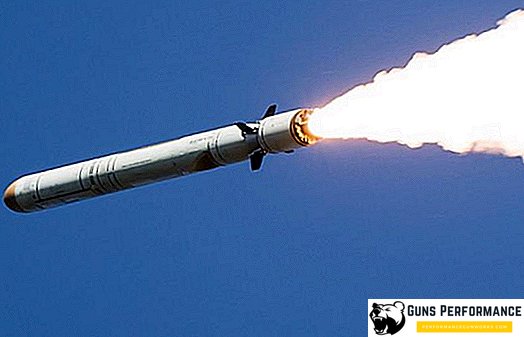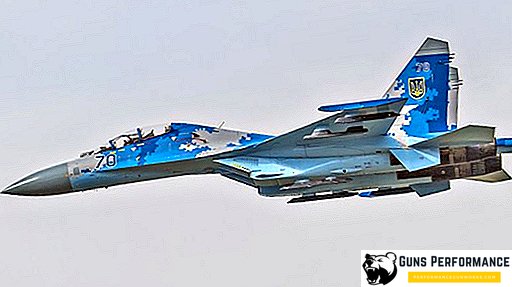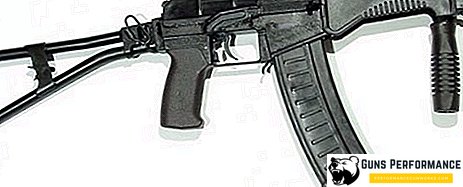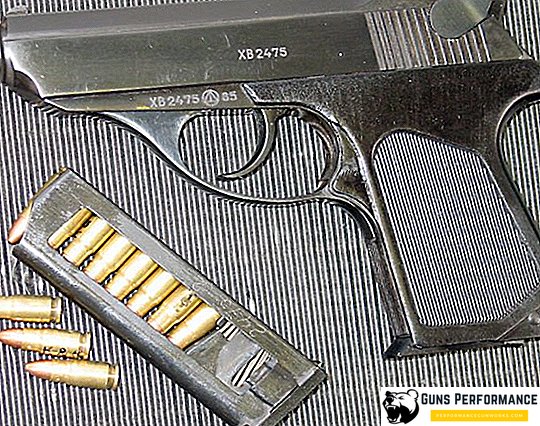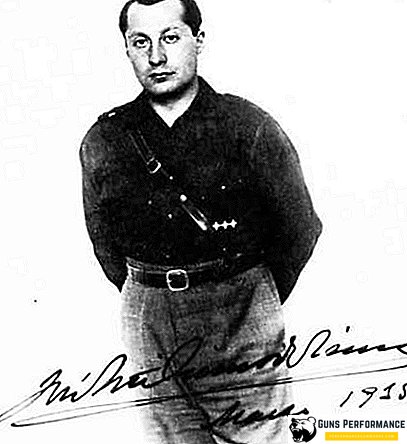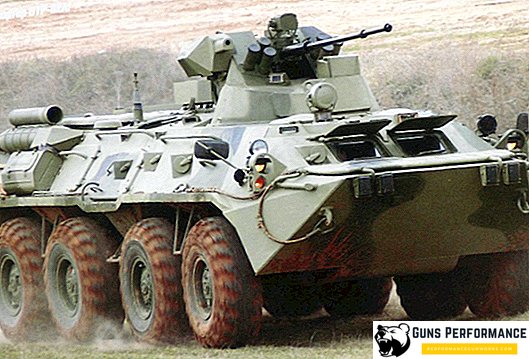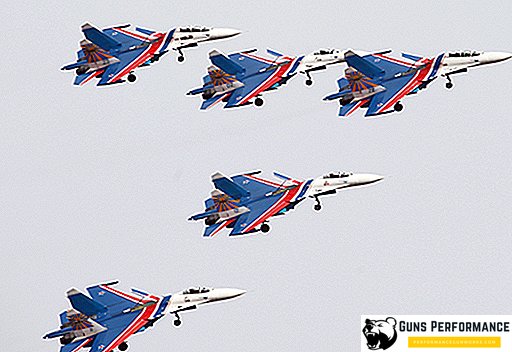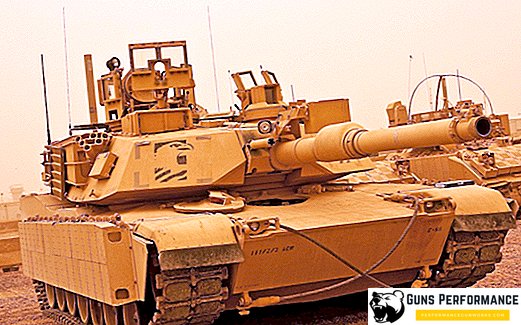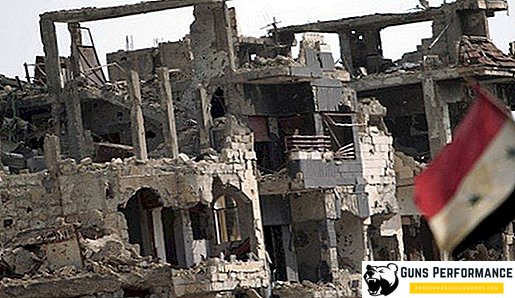
Russian officials claim that our troops do not participate in ground operations in Syria. But is it. Skynews journalists interviewed two former mercenaries who fought in Syria as part of the Wagner PMC.
"Only a small number of instructors and military advisers," Russian officials do not get tired to say that there is no need for a ground operation in Syria.
These allegations about the low cost of the Syrian conflict for Russia can be seriously questioned after the story of two young people who claim that Russian participation in the Syrian events has a much greater scope and price, which they are unlikely to want to admit in the Putin administration.
The interlocutors told reporters that for service in Syria, they were recruited by the private military company "Wagner" and taken there on board a Russian military transport aircraft.

For an amount equivalent to £ 3 thousand per month, these people were thrown directly into the thick of the fighting with rebel groups, including the Islamic State.
Two of this group, Dmitry and Alexander, told reporters that they are happy only because they survived.
"About 50 to 50," says Alexander (this is a fictitious name). "Those who go there because of money, as a rule, die. Those who go to fight for the idea, fight against the Americans, their special forces, are more likely to survive."
“Approximately 500-600 people died there,” says Dmitry. "No one will ever know about them ... This is a scary thing. No one will ever know."
Russian Prime Minister Dmitry Medvedev warned in February that the deployment of foreign ground forces in Syria could lead to the start of a new world war. Probably, in his opinion, Russian mercenaries are not among them - although, analysts are not too surprised by this.
Military analyst Pavel Felgengauer believes that the use of mercenaries is quite consistent with the Russian doctrine of "hybrid war."

"It is obvious that Wagner exists. Such volunteers appear in zones of various conflicts where the Russian government wants to be represented. First Crimea, then Donbass, and today Syria. And they are all there illegally," he adds.
Private military companies are prohibited by Russian law, but this does not stop people launching such operations.
It is known that the PMC "Wagner" is headed by Nikolai Utkin, a former Special Forces officer and an employee of the GRU of the Russian Defense Ministry. His only photograph a few months ago was published by journalists from the St. Petersburg Fontanka.
The article says that this man is a big fan of the aesthetics and ideology of the Third Reich. His call sign is also a tribute to Hitler’s favorite composer.
The company recruited hundreds of men online, advertising it places on the military forums of a popular Russian site.
Skynews journalists managed to get a record of the conversation between one of the recruits and the Wagner agent. Here he is:
Applicant I heard that Wagner is picking up guys. I served in the ... division.
Agent. What physical shape are you in?
Applicant I can run 10 km, I can pull up 20 times.
Agent. Can you run 3 km in 13 minutes?
Applicant Yes of course. In the army I did 11 km in 40 minutes.
Agent. Do you have problems with the law, debts?
Applicant I need money. I want to buy an apartment.
Agent. Do you have a passport?
Applicant Yes of course.
Agent. Then come to Molkino. You have a high chance of being selected.
Molkino is a small village in southern Russia. There is a base of army special forces, part of it was transferred to Wagner and his people for the selection and training of new recruits.
Alexander, on whose account several business trips to Syria, said that some of the recruits did not even know how to shoot. He also said that workouts, which usually last a month or two, are very intense.
He said that if a person did not serve in the army, then he is prepared from the zero level. He is taught to be an infantryman, and, in fact, they make ordinary cannon fodder. If a recruit served in artillery, reconnaissance or assault units, then his skills are “polished”. Such people are taught to manage and use any equipment that is available.
Dmitry said that recruits are being taught to handle NATO uniforms and ammunition.
Soon, both men were on the main Russian base on the Syrian coast.
Alexander said that he joined the detachment, which totaled more than 500 people.
“We had 564 people, and we were stationed at the base. We had two reconnaissance companies, one air defense company, two assault groups and infantry, plus heavy artillery, tanks, and so on,” he says.
Dmitry says that he joined the detachment of 900 people. Previously, he worked in an office and had a modest military experience.
"We arrived at the airport at night. How is it called? Hmay? Hymeem? Hhmemeen? (Khmeimim). Then we were put into trucks. To be honest, I was scared. I don't want to build a cool one, I didn’t get very good at doing the exercises," he.
Wagner’s fighters accused their command of sending them to suicide attacks in order to weaken the rebel forces before the attack of the Syrian government army.
Alexander spoke about the battle for Palmyra, which took place several months ago.
“During the storming of Palmyra we were used as cannon fodder. Intelligence first went ahead to examine and report. I knew three of their group - two died before they even reached the city. 18 people died from my assault company. these chickens from the Assad army and just finished the work, but we made the most of it, ”says Alexander.
Officially, the number of Russians killed in Syria is still 19. Former Wagner fighters told reporters that hundreds of their colleagues were killed in Syria.

They accuse the Russian authorities of hiding this information.
“Has anyone told you about this? Sometimes the bodies are cremated, and in the documents they write“ I was missing ”, sometimes it is noted in the papers that a soldier was killed in the Donbass, and sometimes they write - a car accident or something like that,” says Alexander .
Dmitri claims that the bill of Russian losses in Syria goes to hundreds.
"Sometimes they burn it, and sometimes they don't," he says. "Often this is just a hole in the ground. Much depends on how the commanders treat the fallen fighter," he adds.
Dmitry has already returned to Moscow, but the experience still haunts him. When he was recruited to Wagner, he gave his documents. He went to the training base to find them, but instead found himself in the police. The officer unequivocally told him that "Wagner never existed."
Dmitri said that he knows about 50 more men who survived in Syria, who, like him, roam the streets of Moscow without documents.
“No one knows me. He just threw me out,” says Dmitry.


